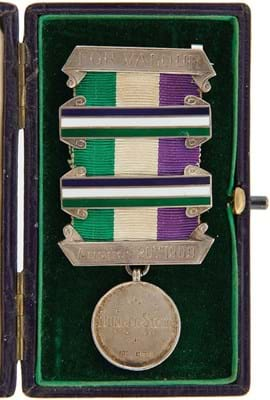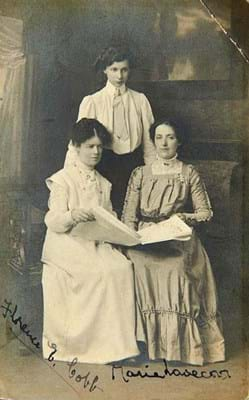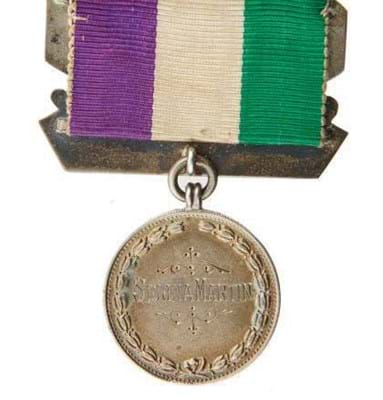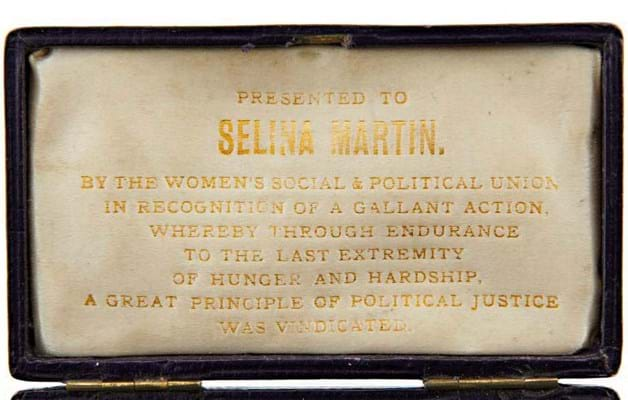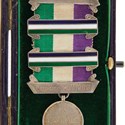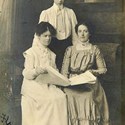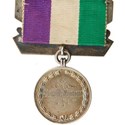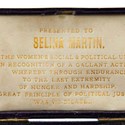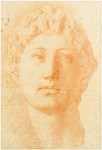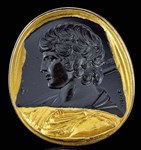At just under one inch wide hanging from its symbolic purple, white and green ribbon, it is smaller than most medals but its huge significance – and modern-day price value – was shown at Nottingham auction house Mellors & Kirk when it sold for £27,000 (plus 20% buyer’s premium).
Offered in its original green plush lined purple morocco case of issue, dated August 20, 1909, it was estimated at £15,000-20,000 on March 20. Sold with the medal, consigned by a family member, was a major archive of letters including ones from Christabel Pankhurst and other prominent figures in the movement and letters Martin wrote from prison.
It was bought by a benefactor of the National Gallery of Victoria, Australia.
Of all the memorabilia relating to the fight to win votes for women, the Medal for Valour is the most poignant.
The award was established in 1909 by the Women’s Social and Political Union (WSPU) to recognise the struggle of those prepared to pay an extraordinarily heavy price for their principles, including police brutality and violent force feeding in prison. Fewer than 100 are thought to have been awarded.
Martin’s medal – struck in silver and hallmarked at Birmingham – has not one but two enamelled bars engraved Fed By Force dated September 17 and December 21, 1909.
Defiant prisoner
Auctioneer Nigel Kirk said: “What is most astonishing is Martin’s indomitable spirit while ‘inside’.
“Immediately on arrival she took off her shoe and used it to smash her cell windows and barricaded the door so effectively that the prison officers had great difficulty gaining access.
“Writing to her parents with a real sense of ‘gallows’ humour in letters full of brio she remarks in one ‘I don’t even have to masticate my food let alone put it in my mouth, it’s a great saving on my teeth. You better see … the plumber about laying in a few more yards of piping as I’m sure to be too lazy ever to feed myself again’.”
The most well-known action of Martin, on December 20, 1909, was when she and fellow Suffragette Leslie Hall approached Prime Minister Asquith as he was leaving his car and asked him about his views on female votes. He did not answer, angering Martin so much she threw an empty ginger beer bottle into his car, reportedly smashing windows.
Martin’s medal was the centrepiece of the recent exhibition Represent! Voices 100 Years On at the People’s History Museum, Manchester.
It is the latest in a run of very strong results for Suffragette memorabilia boosted by last year’s centenary of women gaining the vote.
A stand-out sale came last July when a Suffragette archive including a ‘hunger strike’ medal sold for a hammer price of £40,000 at Catherine Southon’s auction in Surrey. Relating to the Welsh-born Kate Evans, it was bought by National Museum Wales.


